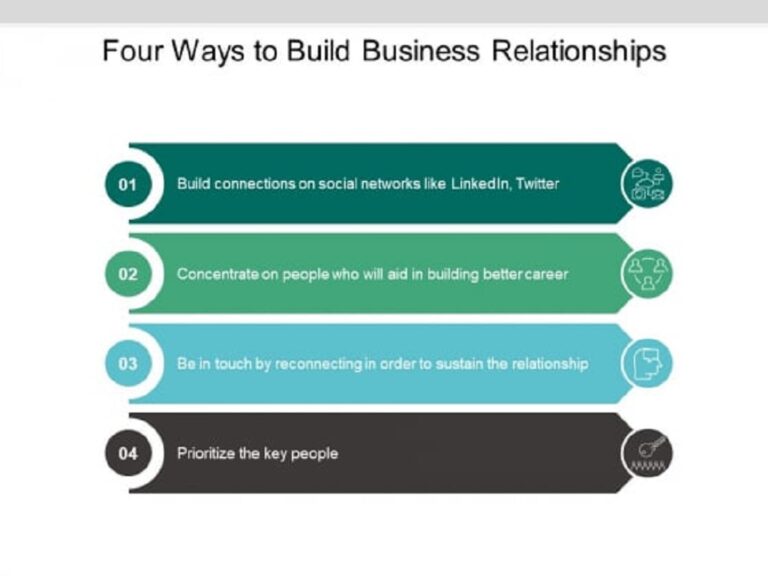To come up with business ideas, analyze market gaps and trends, conduct market research, and brainstorm with a diverse group of people. Are you looking to start a new business but struggling to generate unique and innovative ideas? Coming up with new business ideas can be challenging, but with the right strategies, it is possible to identify lucrative opportunities. Analyzing market gaps and trends, conducting thorough market research, and brainstorming with a diverse group of individuals can help unlock your creativity and generate viable business ideas.
We will explore effective techniques and strategies to help you come up with innovative business ideas that have the potential to succeed in the market. Communal Business emphasizes the importance of a creative and analytical approach. So, let’s dive in and discover how to turn your entrepreneurial dreams into reality, utilizing insights and guidance from experts in the field to craft a business concept that not only aligns with market needs but also resonates with your passion and expertise.
Unleashing Your Entrepreneurial Genius

Entrepreneurship is a journey that starts with an idea. To unleash your entrepreneurial genius, you need to tap into your passion and strengths, identify problems and solutions, and think outside the box. In this section, we will walk you through the process of coming up with business ideas. Let’s get started!
Understanding Your Passion And Strengths
Success in entrepreneurship often comes from doing what you love and excelling at it. Understanding your passion and strengths is crucial in coming up with business ideas. Here’s how you can uncover your inner genius:
- Reflect on your hobbies and interests: What activities do you enjoy the most? Whether it’s painting, cooking, or outdoor adventures, your passions can serve as a guiding light for potential business ideas.
- Assess your skills and expertise: What are you exceptionally good at? Are you a whiz at web design or a natural-born communicator? Identifying your strengths can help you align your business idea with what you’re already good at.
- Consider your personal experiences: What challenges have you faced in your life? Your own experiences can inspire unique business solutions. For example, if you struggle to find quality vegan skincare products, you might consider starting an eco-friendly beauty line.
Identifying Problems And Solutions
Great business ideas often stem from solving problems. By identifying problems and discovering innovative solutions, you can create a truly valuable product or service. Here’s how to do it:
- Observe your surroundings: Pay attention to common struggles people face in their daily lives. Whether it’s inefficient processes, unmet needs, or outdated technologies, recognize the gaps where your business can make a difference.
- Talk to potential customers: Engage in conversations with your target audience. Ask open-ended questions to uncover pain points and challenges they are experiencing. This direct interaction can spark ideas and help you validate your assumptions.
- Research existing solutions: Investigate the current market landscape and competitors. Is there room for improvement? Can you create a better, more efficient, or more affordable alternative? Identifying these gaps can lead to untapped business opportunities.
By combining your passion and strengths with problem-solving skills, you can unlock your entrepreneurial genius. Take the time to understand what drives you and seek out areas that need improvement. The next big business idea could be just around the corner.
Developing Your Business Idea
Developing a business idea is a crucial step in starting a successful venture. One promising area to consider is automation business ideas, which are becoming increasingly relevant in today’s technology-driven market. It involves creating a value proposition and conducting market research to gain a deep understanding of your target market. By focusing on these steps and exploring the potential of automation, you can refine your business idea and significantly increase the chances of its success. This process ensures that your concept is not only innovative but also meets the evolving needs of consumers and businesses.
Creating A Value Proposition
A value proposition is what sets your business apart from the competition and convinces customers to choose your product or service. It is a clear statement that communicates the unique benefits your business offers. To create a compelling value proposition:
- Identify the problem or need that your business solves
- Define the specific benefits customers will gain from your product or service
- Highlight what makes your business unique and differentiates it from competitors
By focusing on these key elements, you can craft a value proposition that resonates with your target audience and compels them to choose your business.
Conducting Market Research
Market research is essential for understanding your target market, identifying customer needs, and assessing the demand for your product or service. To conduct effective market research:
- Identify your target market by considering demographics, psychographics, and behaviors
- Collect data through surveys, interviews, and focus groups to gain insights into customer preferences and pain points
- Analyze competitor offerings and identify gaps or opportunities in the market
- Use online tools and resources to gather industry data, trends, and forecasts
By conducting thorough market research, you can make informed decisions and tailor your business idea to meet the needs of your target market effectively.
Refining Your Idea
Refining your business idea is a crucial step in the process of developing a successful venture. This stage involves reducing your concept to its core and ensuring it’s both feasible and appealing to your target audience. Here’s how you can refine your business idea to increase its potential for success.
Validating Your Concept
To validate your business concept, conduct thorough market research to ensure there is a demand for your product or service. Consider the following approaches:
- Identify your target market and understand their needs and pain points.
- Analyze your competitors to see what is currently being offered and identify any gaps in the market.
- Test the viability of your idea by conducting surveys and interviews to gather feedback from potential customers.
Seeking Feedback And Iterating
Seeking feedback is essential for refining your business idea. Engage with mentors, industry experts, and potential customers to gain insights and perspectives. After receiving feedback, iterate on your concept by incorporating suggestions and addressing any concerns or weaknesses. This iterative process allows you to continuously improve and refine your business idea.
Turning Ideas Into Action
Once you have brainstormed and evaluated various business ideas, it’s time to turn them into action. This is the phase where you start laying the foundation for your business and bring your ideas to life. To do this successfully, it’s essential to follow some key steps, including crafting a business plan and building a prototype or minimum viable product (MVP).
Crafting A Business Plan
A business plan serves as a roadmap for your business and outlines your goals, strategies, and financial projections. Crafting a comprehensive business plan can help you clarify your vision and identify potential challenges and opportunities.
To create an effective business plan, consider the following:
- Clearly define your business idea, target market, and competitive advantage.
- Identify your target audience and conduct market research to understand their needs and preferences.
- Outline your business goals and objectives, both short-term and long-term.
- Develop a marketing strategy that includes your target audience, pricing, and distribution channels.
- Create a financial plan, including projected revenue, expenses, and cash flow.
- Outline your management structure and team members.
Remember, your business plan should be concise, well-researched, and compelling enough to attract investors and partners.
Building A Prototype Or Mvp
Building a prototype or minimum viable product (MVP) allows you to test your business idea in the real world and gather valuable feedback from potential customers. This step is crucial as it helps you validate the feasibility and market potential of your concept.
When building a prototype or MVP, consider the following:
- Identify the core features and functionalities of your product or service.
- Create a basic version of your product or service that showcases its key benefits.
- Test your prototype or MVP with a small group of target customers and gather their feedback.
- Iterate and refine your product based on the feedback received.
- Once you are confident in your product’s market fit, you can start scaling and expanding your business.
Remember that building a prototype or MVP doesn’t have to be perfect. The goal is to gather feedback and make improvements based on real-world usage.
Overcoming Challenges
Developing innovative business ideas involves overcoming challenges such as market research, identifying customer needs, and unique value propositions. Analyzing industry trends, networking, and staying adaptable are essential steps in coming up with successful business concepts. Through persistence and creativity, entrepreneurs can conquer obstacles and transform their vision into a profitable venture.
Navigating Market Competition

When starting a business, one of the biggest challenges is navigating the complex web of market competition. In this crowded marketplace, it is crucial to find a unique selling proposition that sets your business apart from the rest. This means conducting thorough market research to identify gaps in the market, as well as understanding your target audience and their specific needs and preferences. Be sure to also analyze your competitors’ strengths and weaknesses, so you can position your business strategically and offer something different and valuable.
Managing Risks And Failures
Another challenge entrepreneurs face is managing risks and failures along the way. It’s important to acknowledge that failures are a natural part of the journey towards success. However, by implementing a proactive risk management strategy, you can minimize the impact of potential setbacks. Start by identifying potential risks and create contingency plans to address them. Develop resilience and the ability to quickly adapt to changing circumstances. Learn from your failures, make adjustments, and keep moving forward.
Tables:
To better understand the challenges and strategies for overcoming them, let’s take a look at a comparison table:
| Challenge | Strategy |
| Navigating Market Competition | Conduct thorough market research and identify a unique selling proposition. |
| Managing Risks and Failures | Implement a proactive risk management strategy and learn from failures. |
Conclusion
Overcoming challenges in business is never easy, but with careful planning and strategic thinking, you can navigate market competition and manage risks and failures along the way. By identifying a unique selling proposition and understanding your target audience, you can position your business for success. Remember to embrace failures as learning opportunities and continuously adapt your strategies. With persistence and determination, you can overcome any obstacle and build a successful business.
Frequently Asked Questions For How To Come Up With Business Ideas
How Can I Generate Business Ideas?
To generate business ideas, start by identifying your talents, passions, and skills. Research industry trends, analyze market gaps, and brainstorm unique solutions. Consider your target audience, their needs, and pain points. Seek feedback, network with like-minded professionals, and embrace innovation.
Keep an open mind, stay curious, and keep learning.
What Are Some Techniques To Brainstorm Business Ideas?
To brainstorm business ideas, try techniques like mind mapping, SWOT analysis, and SCAMPER. Engage in solo brainstorming or collaborate with a team. Use problem-solving frameworks like the 5 Whys or the Six Thinking Hats. Explore different perspectives, challenge assumptions, and gather inspiration from diverse sources.
Remember to prioritize feasibility, market demand, and your interests.
How Important Is Market Research For Business Ideas?
Market research is crucial for business ideas as it helps you understand customers, competitors, and industry trends. It enables you to identify market gaps, consumer needs, and potential demand for your product or service. By conducting thorough market research, you can validate your business idea and make informed decisions regarding its viability and potential success.
Conclusion
In short, generating business ideas requires creativity, problem-solving, and market research. By exploring various brainstorming techniques, identifying consumer pain points, and staying updated on industry trends, anyone can find inspiration for their next venture, including crafting top 7 ideas for an ebook to promote your business, which ultimately demonstrates that successful businesses are born from innovative thinking and a keen understanding of customer needs.
Keep exploring, and you’ll find your unique business idea!





